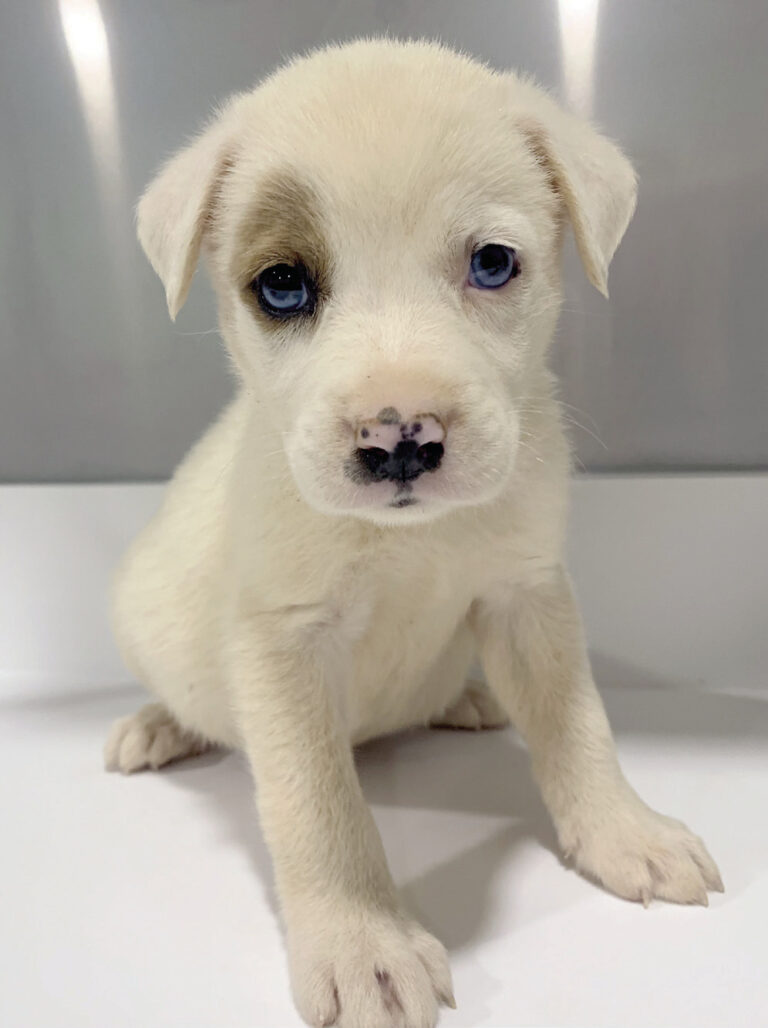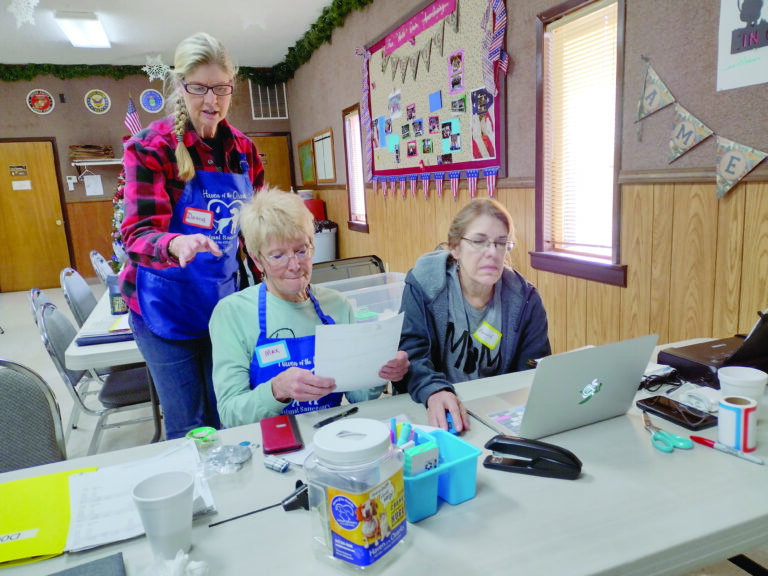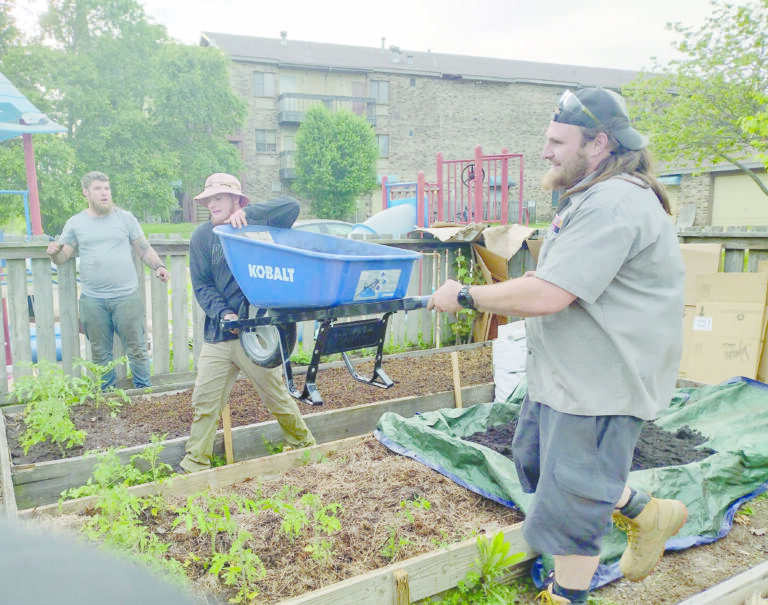4-1-1 ON 9-1-1: Earning a stork badge
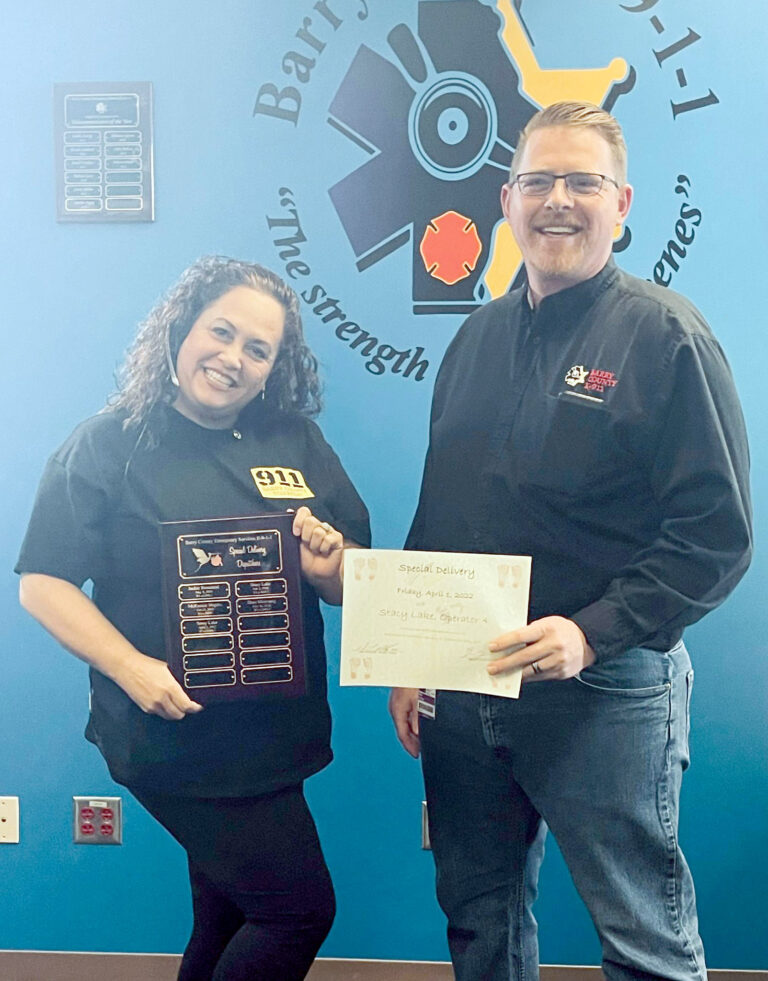
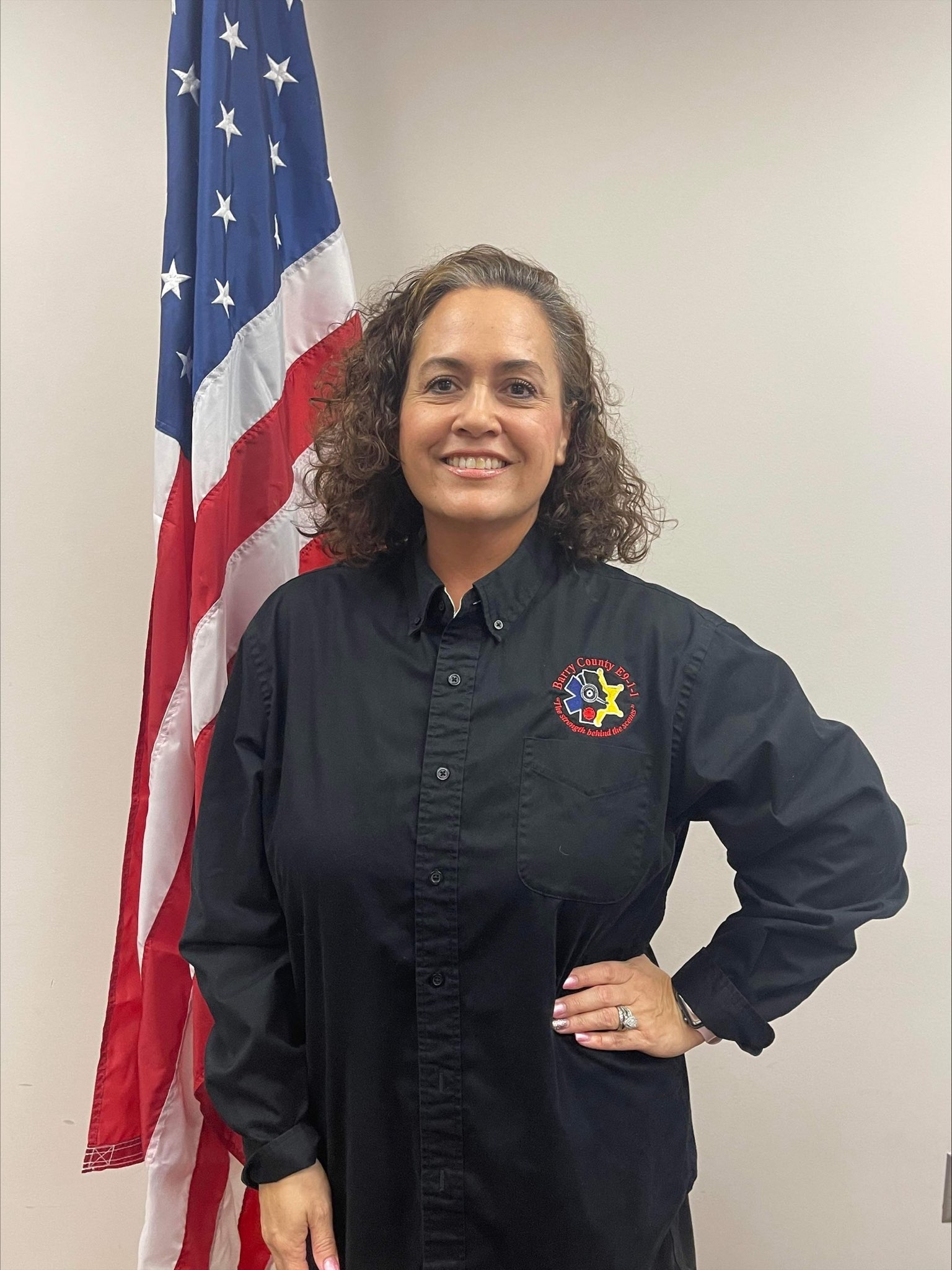

9-1-1 dispatcher helps deliver two babies over the phone
By Jordan Troutman jtroutman@cassville-democrat.com
Having a baby is a particularly stressful experience, especially if the circumstances surrounding the birth are not what the mother to be may have planned.
Thankfully, there is always someone a phone call away to help in any situation.
Stacy Lake is a Barry County Emergency Services E9-1-1 dispatcher who celebrated her sixth work anniversary on July 10, 2023.
She came into the field with no previous experience in emergency services, but she had previously worked in a doctor’s office. In February 2020, and again on April 1, 2022, Lake earned stork badges for her assistance in delivering babies over the phone.
Barry County Emergency Services E9-1-1 has been awarded a total of five stork badges for assisting in a baby delivery.
The first was Jackie Breazzeal in May 2016, when a baby girl was delivered, followed by Lake’s first delivery, a boy, in October 2020, McKenzie Maples helped deliver a boy in November 2020, Zhan Mourning helped deliver a girl in November 2020, and finally, in April 2022, Lake helped to deliver a second child, a baby girl.
“During COVID, we had a total of 4 home births,” Lake said. “In February 2020, we got a call from a man who said, ‘My wife is in labor!’
“I immediately went through protocol. It was very early in the morning, and the deputies and myself had just come on shift.”
Lake immediately sent a deputy to the location, but he had never had the experience of delivering a baby either.
“[The deputy] took over for the dad and once the baby was out, the ambulance was able to take care of mom and baby,” lake said. “Because of our protocols, I can instruct them in a professional way, and they are reassured by that.”
Mike Phillips, Barry County Emergency Services E9-1-1 director, said that mother had other children, so she had some idea of what to expect.
However, on April 1, 2022, Lake took a phone call that was exceptionally different.
“It was very early and still dark outside,” she said. “A man called and said, ‘I need help.’ His niece was having a baby.”
But that wasn’t the scariest part of the call.
“The man then said, ‘I see a foot,’” Lake said. “I went straight into the medical protocol. [The uncle] was very nervous, and he had called his neighbor over to help. Once the neighbor took over the call she kept saying, ‘I’m just the neighbor lady.’ I said, ‘Well, today you are delivering a baby.’”
Lake eventually got the mom settled and into position.
“Once that happened, the baby came right out – feet first,” she said. “I had never experienced [a breech baby delivery] before.
“Hearing that first cry from the baby is when you stop and think, ‘We just brought this baby into the world.’”
Lake said often times, the 9-1-1 dispatchers don’t get to know what happens after the call ends, but she did get word from the responders that the mom and baby were OK.
“It was a great team effort between my partner and myself,” Lake said. “We had protocols and flip cards, and it was all very exciting.”
Phillips said those are the moments that we see the team [responders and dispatchers] working together toward a common goal.
“It is wonderful to see that outcome,” Phillips said. “Not everyone can do this job, and it is not for everyone. So, a situation with a positive outcome it is important to let the dispatchers know their impact is bigger than they ever even know.”
It isn’t always a fun job, and certainly not an easy one, but the impact 9-1-1 dispatchers make on their community is tremendous.
The breech baby was born to a first-time mom.
“The protocols are built so that when something comes up, there is another pathway for us to take,” Lake said. “I had all the tools I needed. The baby was born, and the fire department was there to take over and cut the umbilical cord.”
Lake has four children of her own and two grandchildren, so she was able to pull from her personal experiences in this moment of crisis.
“With the breech baby, and with it being a first-time mom, I knew she was in a lot of pain,” she said. “I had to calm her. With three out of my four children, I didn’t have an epidural, so I could sympathize and understand her.
“Your intuition is coming out in a moment like this. You hear, ‘I see a leg,’ and you think, “Well, put it back.’ But again, because of the protocols we can handle it much more professionally.”
The training that Barry County Emergency Services E-9-1-1 dispatchers must complete includes a wide array of topics, anything from basic two-way radio communications, EMS, fire and police calls and instructing CPR.
“We also require advanced training that covers more serious call types like pursuits, mass casualties, structure fires, stroke, and birthing/delivery protocols to name a few,” Phillips said.
“We take time to practice protocols, so we are prepared for something even if it is not something we use every day,” Lake said. “To me, those are the huge highlights, when a call has a positive outcome. We get a lot of calls that don’t have positive outcomes. These giant things that happen in our community make me realize this is why I am here, this is why I show up for my community and continue to be here for them.”
For the first baby Lake delivered, the phone call lasted about 30 minutes, and for the breech baby it was all over in 12-15 minutes.
“Medical calls always take a little longer,” Phillips said. “We typically need more information on medical calls versus fire or police. With medical calls, we are continuing to give advice for the whole duration of the call until responders arrive on scene.”
Phillips said there is something that is quite different about being a 9-1-1 dispatcher versus a first responder.
“Responders are responding to one call at a time, they are putting all of their effort into that one call,” he said. “Dispatchers are responding to everything else that is happening. We can’t pause because there is a breech baby — Barry County keeps on going.”
Lake said when both babies were born, she knew she had a good team, and her partners took care of everything else while she was on her calls.
“I had different partners for each call,” she said. “But, they each had my back. My team comes together with a common goal to be supportive and positive, even on the bad calls.
“We get a stork pin for every baby we deliver — and now I have two.”

